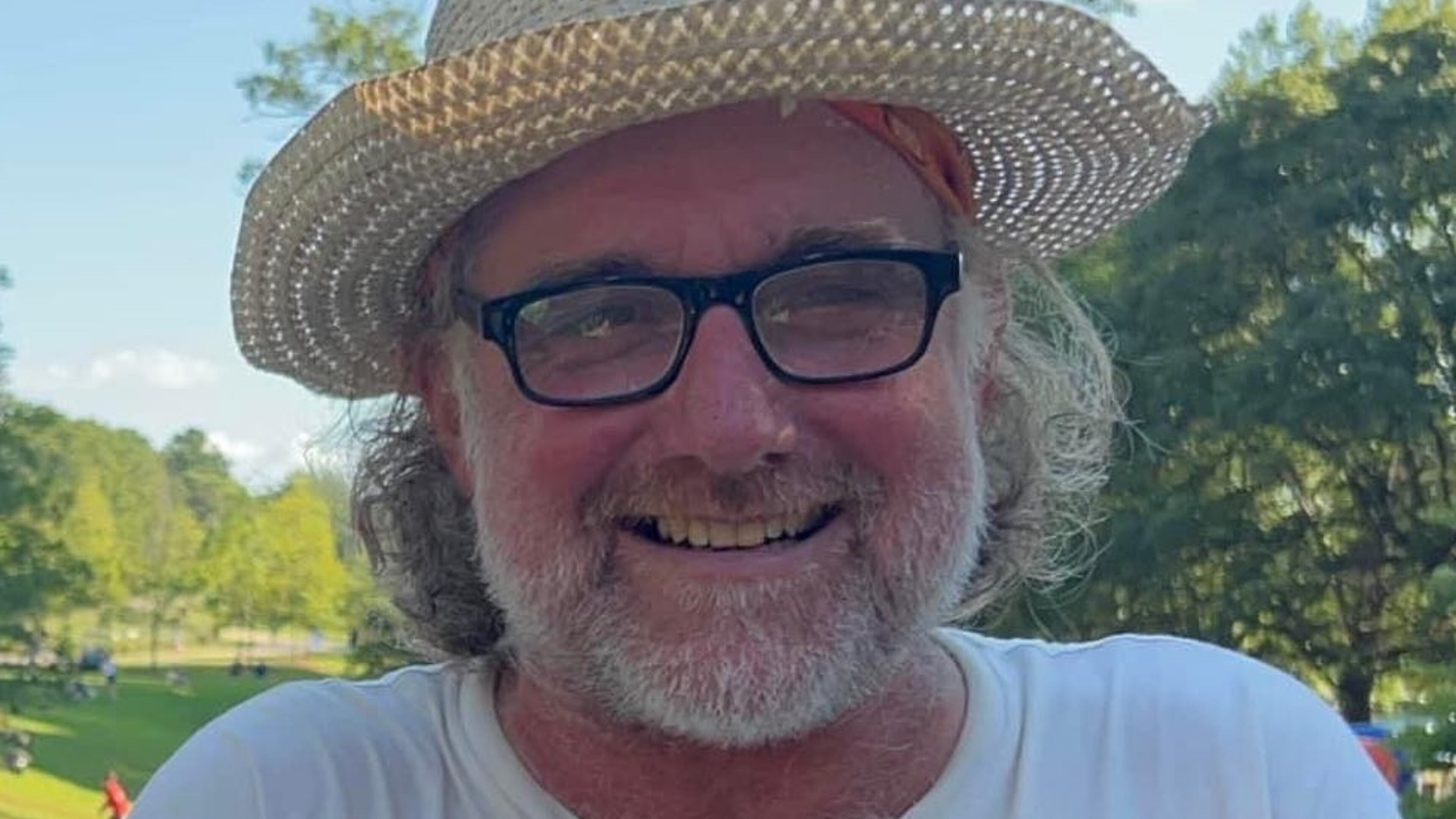Brian “Farmer Red” Harrison, a rare urban farmer, dies at 54

Brian Harrison never planned on becoming a farmer, but he didn’t want to lose the six-acre spread he’d assembled behind his in-town home to spiraling property taxes.
So he took classes in organic gardening, added a beehive, turned the land into the city’s only working vegetable farm, and found out he was pretty good at agriculture. The accidental farmer who slashed his taxes by changing the property’s zoning classification also cultivated a devoted following.
Customers, friends, family, and neighborhood gardeners who kept plots in Harrison’s Urban Farm Ormewood (UFO) are mourning the death of the man they called “Farmer Red,” thanks to his once bright red hair that had silvered with age. Harrison died Oct. 7 while under treatment for a heart attack at Grady Memorial Hospital. He was 54 years old.
Grace Kim, a friend, neighbor, and fellow UFO gardener, called Harrison, “an activist and a revolutionary in his own way, who lived according to his own values and his own vision.”
Others who knew Harrison well described him as eccentric, a man who didn’t always take care of himself but who was exceedingly kind and logged countless miles walking around and far beyond the neighborhood. That’s because none of the three vehicles Harrison kept at his yellow wood-frame house with green trim ran — a multicolored hand-painted 1946 Dodge Truck, a red 1964 Plymouth, and the blue 1960 Cadillac in the garage, the one in which he drove a date to the prom..
Harrison’s sister, Susie Aquino, recalled introducing herself to an acquaintance of her brother who expressed tongue-in-cheek surprise that Harrison actually had a family. “We thought he was raised by wolves,” Aquino recalled the woman saying.
He leaves behind his sister, his father, Bill Harrison of Stone Mountain, his father’s wife, Nancy, a brother, also named Bill Harrison, a nephew and two nieces.
Harrison, a Seattle native, grew up in Stone Mountain. He got his first job at 14 as a dishwasher at a Memorial Drive restaurant. By 16, he bought his first car, the Caddy he drove to the prom. At 18, Harrison bought his first house, a home in East Point.
He graduated a year early from Stone Mountain High School in 1985. He earned an associate’s degree from DeKalb Community College and attended Georgia State University, where he studied ceramics.
Harrison also became a glass cutter and worked for his parents’ stained-glass business they ran out of their Stone Mountain home.
While engaged in crafty pursuits, Harrison earned his keep working as a cook in area restaurants. Aquino said he probably worked in every restaurant in Little Five Points, Grant Park and East Atlanta.
But his passion was “tinkering,” according to his sister. “If there was a piece of wood lying around he made it into something,” Aquino said.
Harrison bought his Ormewood Park home in the early 1990s, Aquino said, and later, cobbled together the tracts behind it that run beside Intrenchment Creek. Harrison’s house is connected to the farm by a trail his family believes is an old Civil War trench that rises up a hill to the UFO gardens, which in winter feature a spectacular view of Downtown Atlanta and in springtime hosted a massive neighborhood Easter egg hunt.
In those gardens, Harrison planted fruit trees, berries — which he invited neighbors to pick — tomatoes, eggplant, beans, squash, even Christmas trees ― though they didn’t fare so well. On his land stands still his 1953 Farmall tractor that he used to ride through the neighborhood and up Moreland Avenue to a nearby farmers market.
Now, nearby, there is a makeshift table made of two sawhorses and a red-painted piece of plywood. On top are scattered mementos, including a guest book for visitors to scribble their memories of Farmer Red as well as an unopened Miller High Life tall boy.
Neighbor George Willis, who was recently walking his dog through the farm, said Harrison “felt very strongly about this spot. It was his legacy. He always talked about making sure it stayed put even though he had offers from developers for all this money.”
Harrison, who often struggled to keep the farm afloat, suffered both financially and from declining health during the pandemic. Now that he’s gone, some neighbors worry what will happen to the farm.
“His family wants to keep his legacy alive,” Aquino said. " We’re dedicated to honoring Brian’s passion and for sharing green space with his neighbors.”
A memorial is planned at the farm at the end of Mercer Street off of Woodland Avenue on Nov. 5 at 1 p.m., followed by a potluck dinner. Those interested in supporting the future of the farm and plans for preservation can find more information on the Urban Farm Ormewood pages on Facebook and Instagram.
An earlier version of this story misidentified the neighborhood where Harrison’s farm is located.

